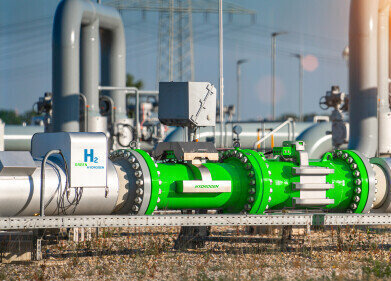Biofuel industry news
Why is Sulphur Monitored in Fuel?
Nov 09 2021
Found everywhere from smoking volcanoes and bubbling hot springs to crude oil reserves, sulphur is one of the most abundant elements on the planet, according to experts at the Jefferson National Linear Accelerator Laboratory. The average oil and gas reservoir contains between 1 and 5% sulphur, with the chemical element one of the key parameters used to classify petroleum products.
Sweet vs sour crude
Sulphur concentrations in crude oil are described using the terms “sweet” and “sour”. Sweet crude oil has low sulphur levels while sour crude is more saturated with the chemical element. According to the New York Mercantile Exchange, petroleum with sulphur concentrations of less than 0.5% is classed as sweet, while anything above this is considered sour.
Want to know more about why sulphur is monitored in fuel? From optimising operational efficiency to minimising environmental emissions, read on to discover why sulphur concentrations are so important in the oil and gas industry.
-
Maximising operational efficiency
High concentrations of sulphur can deactivate the vital catalysts used during oil refining processes.
-
Extending the longevity of machinery and equipment
At temperatures of 260 degrees Celsius, sulphur can begin to corrode expensive refining machinery and equipment. Build-ups of sulphur can also corrode storage tanks and pipelines.
-
Increasing profits
Low-sulphur sweet crude is generally considered more valuable than high-sulphur sour crude as it’s easier to turn a profit.
-
Environmental concerns
Sulphur may be a naturally occurring chemical compound, but it’s also classed as a pollutant by the Environmental Protection Agency. When the chemical compound reacts with oxygen it creates sulphur dioxide, a toxic gas that turns into sulphuric acid when it interacts with air and water. High levels of sulphuric acid in the atmosphere can lead to acid rain, which can destroy forests and crops, acidify soil, contaminate waterways and create health problems for aquatic life.
When sulphur dioxide interacts with elemental carbon, the pair can form aerosols. This has earned sulphur dioxide a label as an indirect greenhouse gas. Furthermore, sulphur can impede emission control systems in vehicles and heavy machinery, which makes sour oil an air pollutant.
-
A threat to human health
Inhaling sulphur dioxide can irritate the respiratory tract, damage the respiratory system and cause long-term damage to the lungs. This is why governments and health organisations are so concerned with monitoring atmospheric sulphur dioxide and introducing air quality control measures.
Find out more about sulphur, including the environmental and health concerns associated with the naturally occuring component, in 'A Complete Guide to Sulphur in Fuel'.
Digital Edition
PIN 26.1 Feb/Mar 2025
March 2025
Analytical Instrumentation - Elemental Analysis for Quality and Process Control at Refineries, for Lubricants and Wear Metals in Engine Oils - Synthetic Lubricants: New Developments - Scaling...
View all digital editions
Events
Apr 22 2025 Hammamet, Tunisia
Apr 22 2025 Kintex, South Korea
Solar & Energy Storage Summit 2025
Apr 23 2025 Denver, CO, USA
Apr 27 2025 Portland, OR, USA
Apr 29 2025 Mumbai, India
.jpg)


















